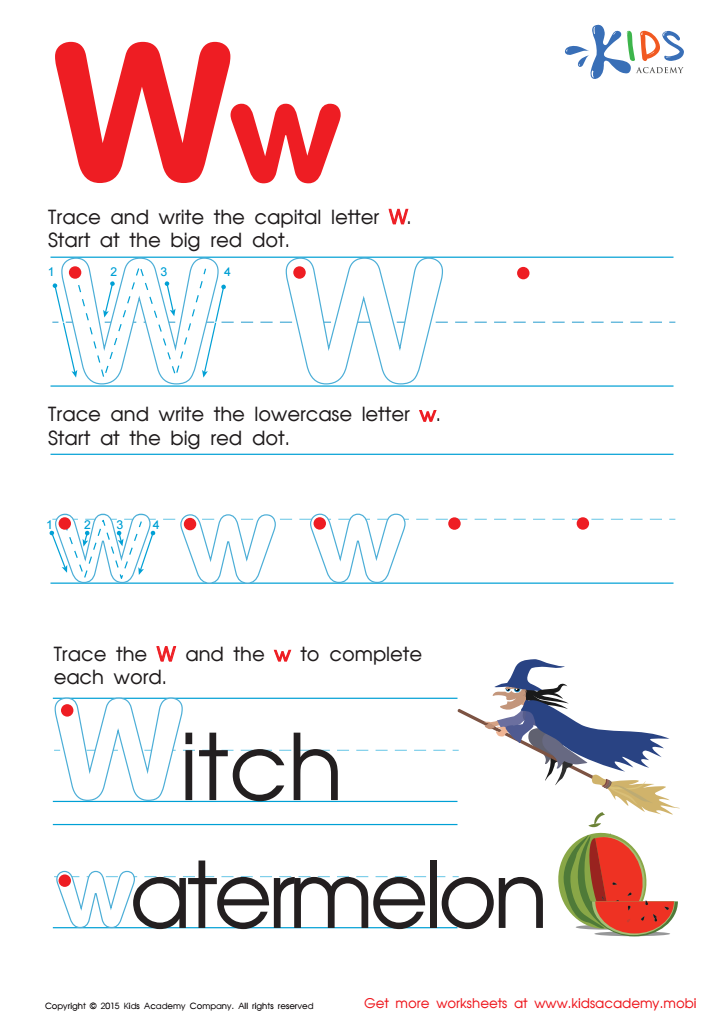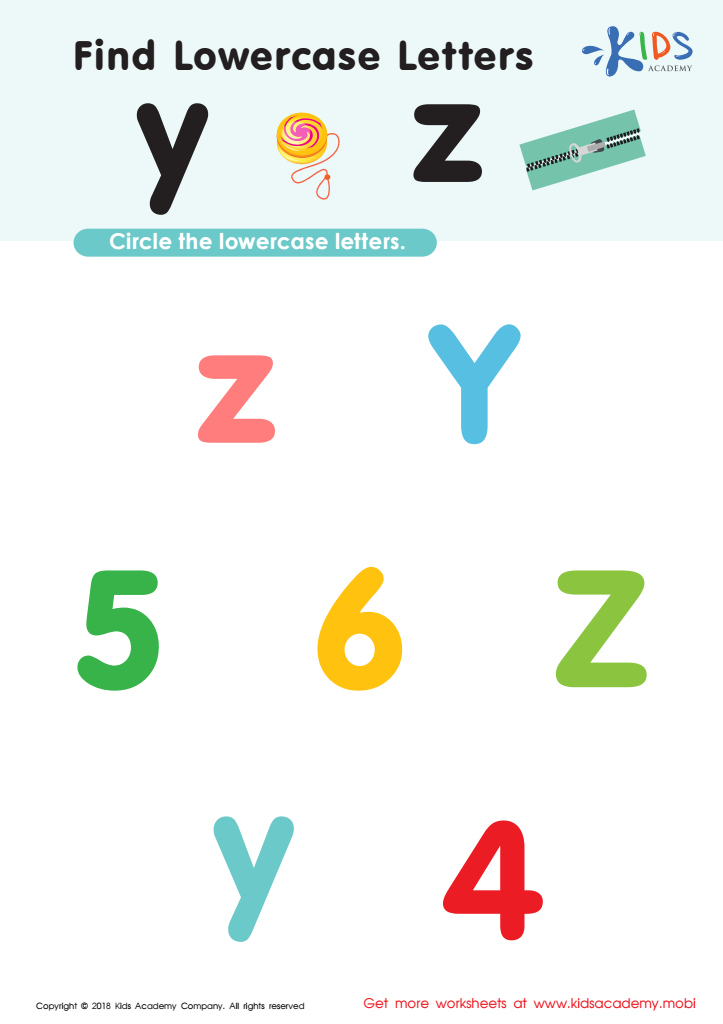Alphabetical understanding Letter Recognition Worksheets for Ages 4-6
3 filtered results
-
From - To
Explore our engaging Alphabetical Understanding Letter Recognition Worksheets designed specifically for ages 4-6! These worksheets are perfect for helping young learners master the alphabet through fun activities that reinforce letter recognition and early literacy skills. Featuring colorful graphics and interactive exercises, children will enjoy tracing letters, identifying their shapes, and matching them with corresponding images. Our resources are crafted to inspire curiosity and joy in learning, making it easier for kids to develop a strong foundation for reading and writing. Download our letter recognition worksheets today and watch your child grow confident in their alphabetical understanding!


Letter E Coloring Sheet


Letter W Tracing Page


Find Lowercase Letters y z Worksheet
Alphabetical understanding and letter recognition are foundational skills vital for children's literacy development, especially for those aged 4 to 6. At this stage, children are honing their ability to identify and differentiate letters, an essential precursor to reading and writing. By recognizing letters, young learners can begin to decode words, making them vital for fearlessly engaging with books and texts.
Parents and teachers play pivotal roles in fostering this understanding. Engaging children in activities that emphasize letter recognition teaches them the sounds associated with each letter, which links directly to phonemic awareness—the ability to hear and manipulate sounds within words. This skill enhances their comprehension and vocabulary, essential for academic success.
Moreover, letter recognition aids in boosting children's self-confidence and enthusiasm for learning. When they can easily recognize letters, they feel empowered to explore written content, paving the way for a lifelong love of reading. Additionally, fostering this skill during early childhood supports inclusive education, ensuring children with varying learning abilities receive the foundational tools necessary for effective communication.
In essence, prioritizing alphabetical understanding and letter recognition prepares young learners for future academic achievements and equips them with vital cognitive and social skills.
 Assign to My Students
Assign to My Students



















